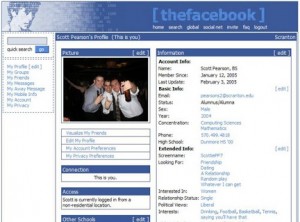Get on the Podium
Send us a message and let us know how we can help with your next project.
By Steve Maybury on 23 Aug 2016
Today – August 23rd – is Internaut Day, the 25th anniversary of the internet being made open to the public.
We’re not fans of the portmanteau – Inter-, as in internet and -naut as in astronaut, symbolising discovery, and it’d be incredibly trite to do what every other blogger is doing today by pointing out what a difference the internet has made to our lives in the past 25 years.
Even looking back at how the internet has changed is a slightly painful experience and, if we’re honest, not especially nostalgic. It’s a bit like seeing pictures of yourself in the sixth form: you rarely think ‘wow, we were so carefree back then, look at us embracing life’. Instead, you focus on how clueless you were, how terrible your hair was and how you could have done things so much better*.
To a degree, it’s the same with the internet. At Podium, we don’t get to revel in nostalgia very often, and with very good reason: it’s pointless. SEO – and the internet generally – moves and develops at an incredible pace. You barely get the chance to revel in what’s current, let alone appreciate what has gone.
One of the reasons we remain successful is because we can adapt to change quickly, and appreciate that you can’t dwell on the past. In search, you need to move pretty quickly just to keep pace. We’re not complaining, though, because progress on the internet is almost always for the better.
Example: the sound of a dial-up modem. It makes people of a certain age weak at the knees with nostalgia but, let’s be honest, it sounds like your five least-favourite songs all playing at the same time. That noise is also the soundtrack to a painfully slow browsing experience. Does anyone want it back? Hell no. If a web page ever takes more than a second to load, we’re resetting our router and using our 4G signal to complain on Twitter.
Another example: remember how much fuss there used to be every time Facebook updated and, therefore, looked slightly different?
Fortunately, people seem to have adapted to change and realised that the changes usually represent improvements. If Facebook was to revert to its original appearance and features, it would look terrible and feel horrible to use.
Just look at it! No thanks.

It’s complicated
Early web design also looks jarring today. A bit like watching an early Friends episode and marvelling at the baggy, shapeless, 90s clothes, this is what the BBC website used to look like.
So, there you go. SEO, and the internet industry, is a nostalgia free zone because it was all pretty much terrible. We have inspired ourselves, though, and next time on the Podium blog we’re going to look at the current trend for rehashing… well, everything.
* That might just be me:
Back
Send us a message and let us know how we can help with your next project.